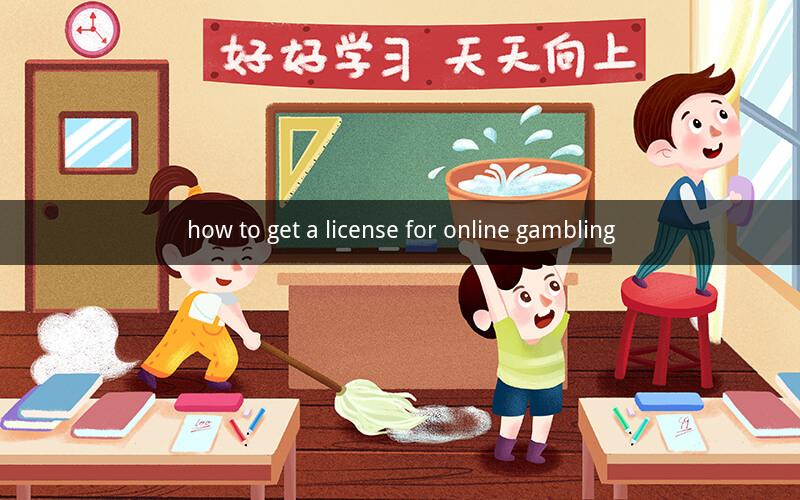
How to Get a License for Online Gambling
Table of Contents
1. Introduction to Online Gambling Licensing
2. Understanding the Importance of Licensing
3. Types of Online Gambling Licenses
4. The Licensing Process
- 4.1. Identifying the Jurisdiction
- 4.2. Meeting the Requirements
- 4.3. Submitting an Application
- 4.4. Review and Approval
5. Maintaining Compliance
6. Conclusion
Introduction to Online Gambling Licensing
Online gambling has become a rapidly growing industry, with millions of players worldwide participating in various forms of betting and gaming activities. To ensure the integrity and security of the industry, governments around the world have implemented strict regulations and licensing requirements for online gambling operators. Obtaining a license is essential for any operator looking to operate legally and build trust with players.
Understanding the Importance of Licensing
Licensing serves several critical purposes in the online gambling industry:
- Consumer Protection: Licenses ensure that operators adhere to strict guidelines, protecting players from fraudulent activities, money laundering, and underage gambling.
- Fair Play: Operators must use certified software and adhere to regulatory standards to ensure fair and unbiased gameplay.
- Legal Compliance: A license demonstrates that an operator is legally compliant and authorized to operate within a specific jurisdiction.
- Revenue Generation: Licensing fees and taxes contribute to the financial well-being of governments and support public services.
Types of Online Gambling Licenses
Online gambling licenses vary depending on the jurisdiction. Some of the most common types include:
- Curacao License: Known for its low cost and ease of obtaining, the Curacao license is popular among new operators.
- Malta License: Recognized as one of the most prestigious licenses, the Malta Gaming Authority (MGA) sets high standards for operators.
- UKGC License: The UK Gambling Commission (UKGC) offers a license to operators willing to adhere to stringent regulations and consumer protection measures.
- Gibraltar License: Known for its favorable tax regime and reputation, the Gibraltar Regulatory Authority (GRA) issues licenses to reputable operators.
The Licensing Process
The process of obtaining an online gambling license varies depending on the jurisdiction. However, the following steps provide a general overview:
4.1. Identifying the Jurisdiction
The first step is to identify the jurisdiction in which you wish to obtain a license. Consider factors such as regulations, costs, and reputation when making your decision.
4.2. Meeting the Requirements
Each jurisdiction has specific requirements for obtaining a license. These may include:
- Age and Background Checks: Operators must provide information about their directors, owners, and employees to ensure they have no criminal history.
- Financial Stability: Operators must demonstrate financial stability, often by providing bank statements and financial reports.
- Technical Requirements: Operators must use certified software and adhere to security standards to protect player data.
- Business Plan: A detailed business plan outlining the operator's strategy, market analysis, and marketing plan may be required.
4.3. Submitting an Application
Once you have met the requirements, you must submit an application to the relevant licensing authority. This typically involves providing all necessary documentation and paying the application fee.
4.4. Review and Approval
The licensing authority will review your application and conduct an investigation, if necessary. If your application is approved, you will receive a license and be allowed to operate legally.
Maintaining Compliance
Maintaining compliance is crucial to retaining your license. This involves:
- Regular Audits: Conducting internal and external audits to ensure adherence to regulations.
- Staff Training: Providing training for employees on regulatory requirements and consumer protection measures.
- Monitoring: Implementing systems to monitor gameplay and player behavior.
- Reporting: Submitting regular reports to the licensing authority.
Conclusion
Obtaining a license for online gambling is a complex process that requires careful planning and adherence to regulations. However, with the right approach, operators can build a successful and reputable business while ensuring the safety and security of their players.
Frequently Asked Questions
1. What is the difference between a gambling license and a betting license?
- Both licenses allow operators to offer gambling services, but a gambling license typically covers a broader range of activities, while a betting license focuses on sports betting.
2. Can I obtain a license for online gambling without a physical presence in the jurisdiction?
- Some jurisdictions, like Curacao, allow operators to obtain a license without a physical presence. However, others, like the UKGC, require operators to have a physical presence within the country.
3. How long does it take to obtain an online gambling license?
- The process can take anywhere from a few months to over a year, depending on the jurisdiction and the complexity of the application.
4. What are the costs associated with obtaining an online gambling license?
- Costs vary by jurisdiction, but they typically include application fees, audit fees, and ongoing regulatory fees.
5. Can I operate an online gambling business without a license?
- Operating without a license is illegal in most jurisdictions and can result in fines, penalties, and closure of your business.
6. How can I ensure that my online gambling platform is secure?
- Implementing robust security measures, such as encryption, firewalls, and regular security audits, can help protect your platform and player data.
7. What are the main challenges of obtaining an online gambling license?
- The main challenges include meeting strict regulatory requirements, providing detailed documentation, and navigating the complex application process.
8. Can I transfer my online gambling license to another jurisdiction?
- In some cases, you may be able to transfer your license, but it depends on the specific regulations of both jurisdictions.
9. How can I stay informed about changes in online gambling regulations?
- Regularly checking the websites of relevant licensing authorities, subscribing to industry newsletters, and attending industry conferences can help you stay informed.
10. What should I do if my online gambling license is revoked?
- If your license is revoked, you should consult with a legal professional to understand your options and take appropriate action to address the issues that led to the revocation.